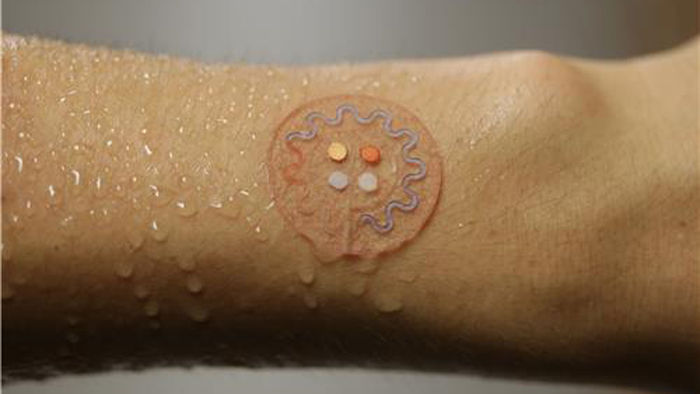- About Ajou
- Admission
- Academics
- Research
-
International
International
- Campus Life
-
News and Event
News and Event
-
AUT
AUT
Ajou News
NEW [16.11.24] Ajou University Professor Dae Shik Kang develops a sensor that allows health checks by utilizing sweat
- 2016-12-06
- 22185

Together with Professor Ah Hyeon Koh from the State University of New York, Ajou University Professor Dae Shik Kang (Department of Mechanical Engineering) succeeded in developing a sensor that analyzes sweat and reports health conditions when attached to the skin.
The research was conducted by a joint team from Ajou, the State University of New York, and Northwestern University, and the findings were published in Science Translational Medicine, an international academic journal, under the title “A Soft, Wearable Microfluidic Device for the Capture, Storage, and Colorimetric Sensing of Sweat.”
Sweat contains various chemical substances that indicate the health condition of an individual. The density of glucose and chloride ions can help diagnose diabetes and cystic fibrosis, respectively. The degree of dehydration within the body can also be measured by sweat acidity (pH).
The research team created several channels within a sensor that are just hundreds of micrometers (㎛, one millionth meter) long each and can collect sweat. It then inserted substances that change color with the density of glucose, chloride ions, and hydrogen ions, etc., within the channels.
Professor Kang explained, "For example, the channel that measures pH is light orange when sweat is at pH 5.0 and it turns green when the pH becomes strong alkaline at pH 8.5."
Being three centimeters in diameter, the circular sensor does not make one feel uncomfortable when attached to the body because it is 700㎛ thick and weighs only about three grams. In addition, it can be stretched like flexible medicated patches on the skin.
Measurement data can be transmitted to a smartphone through the Near Field Communication chip in the top part of the sensor and the application analyses the changing colors and shows users what they mean.
One of the researchers said, "This sensor will help athletes or soldiers easily and accurately understand their health conditions during exercise and is expected to develop into a new system for preventing diseases."
